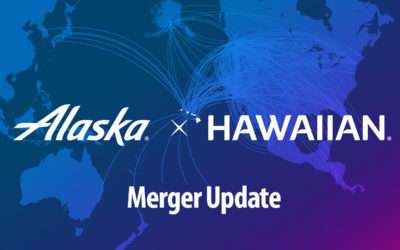The Supreme Court and Federal Agencies have ruled that private companies like United can require employees to get vaccinated. Flight Attendant and Pilot unions are not contesting the policy, and finding another job may not help since many companies also require employees to be immunized from COVID-19. An employee fleeing vaccine mandates at one company may find themselves facing new mandates at their next job. Outside of getting an exemption, there are few options for avoiding vaccination.
Recently, a growing list of airlines and transportation-sector companies, including United, Frontier, Air Canada, and Hawaiian Airlines, announced policies that will require employee vaccinations. Delta Air Lines was the first carrier to announce vaccine mandates in the spring when it began requiring new hires to show proof of COVID-19 immunization as a condition of employment. The airlines join a constantly expanding parade of large companies requiring at least some form of COVID-19 vaccination. This list includes giant companies such as McDonald’s, Facebook, Google, Tyson Foods, and federal departments and agencies.
Meaning, that employees who do not want to get vaccinated can’t simply find another job. Many of the largest employers in the nation, including the Federal Government, are already requiring at least some vaccination mandates for employees. More companies will certainly follow suit, especially once the FDA grants General-Use Authorization to one of the vaccines.
Meanwhile, with its three Trump-appointed justices, the Republican-dominated Supreme Court has ruled that companies, schools, and other organizations may require vaccinations if they choose, including the specific COVID-19 vaccines available in the US. (Bridges vs. Houston Methodist Hospital, Klassen vs. Trustees of Indiana University). In Bridges, the Supreme Court refused to hear a challenge to mandated vaccinations, thus upholding the requirements. In Klassen, Justice Amy Coney Barrett in her role with the U.S. Court of Appeals for the 7th Circuit refused to block similar mandates at Indiana University. Coney Barrett threw that case out without requesting more information or consulting any of the other justices, a move that happens when a case is considered frivolous or otherwise meritless. A second case involving Houston Methodist is currently working its way through the system, but the outcome is not expected to change.
Moreover, state laws designed to prevent “vaccine passports” apply mostly to business customers – not to employees. To date, vaccine mandates for employees in one form or another have been found legal in all 50 states and the District of Columbia.
Major airline unions are also largely backing vaccine requirements. The Association of Flight Attendants, the Airline Pilots Association, and the Teamsters have all issued statements supporting vaccine requirements at airlines to varying degrees. All three acknowledge that the mandates would be upheld in court but stressed that safety measures must be in place.
The International Association of Machinists and Aerospace Workers (District 141) has been gathering input from front-line membership on the subject. While supportive of vaccines, the position most union members is that companies should not resort to mandates until an honest, good-faith effort to use incentives has been tested first. While United has offered some incentives, the company is focused on a punishment-first approach, complicating participation in vaccination programs.
All mass-scale vaccine requirements come with exemptions for those with certain medical, cultural and religious conditions. For example, employees who have recently undergone an organ transplant or chemotherapy treatments are generally exempted from vaccine mandates.
The most strict vaccine requirements are at Air Canada and United. Air Canada’s exemption follows Federal rules in that country, which are slightly different from those in the US. At United, reasonable accommodations are available for employees that can show that the vaccines may harm them or that their faith leaders forbid the use of immunizations.
To obtain a reasonable accommodation, employees will need to fill out a form at United’s HelpHub. In the case of medical exemptions, the employee will need to provide documentation from their doctor. Religious exemptions will require a note from a faith leader explaining the religious prohibitions that the employee follows. The letter will need to be on letterhead.
United is building a staff of lawyers and medical experts to evaluate each request for an exemption. United is not saying how long the process will take.
Once the employee has filed for a waiver to the vaccine requirements and submitted supporting documentation, the matter goes to the Human Resources Department, local management, and the Employee Service Center (ESC). Together, these departments will work with the employee to see if they can reasonably accommodate their continued employment in light of their work restrictions.
United employees seeking a vaccine waiver should start the process as soon as possible. The cut-off date for new requests is August 31.
To date, United is not clear on whether or not unvaccinated people seeking exemptions will be spared termination while waiting for a decision past the fall deadlines, after which employees must be vaccinated.
The FDA is has given full, General Use Authorization to the Pfizer-BioNTech COVID vaccine. This will trigger the 5-week countdown United has for when employees must be vaccinated, which ends on the week of September 25. According to the company, once any vaccine is granted General Use status, employees will only have five weeks to get immunized against COVID-19. Since two-dose vaccines can take weeks to administer, time can run out very quickly. (If the FDA does not grant General-Use Authorization before October 25th, employees will have to get vaccinated by that date at the latest.) The company still has not made clear if employees must be fully immunized – a process that takes about two weeks after the last dose is administered. In that case, employees at United will need to get their final dose by late September or early October in order to have time to develop full immunity.
The vaccine requirements could potentially lead to terminations just as the carrier pays signing and moving bonuses of up to $25,000 to attract new employees.



